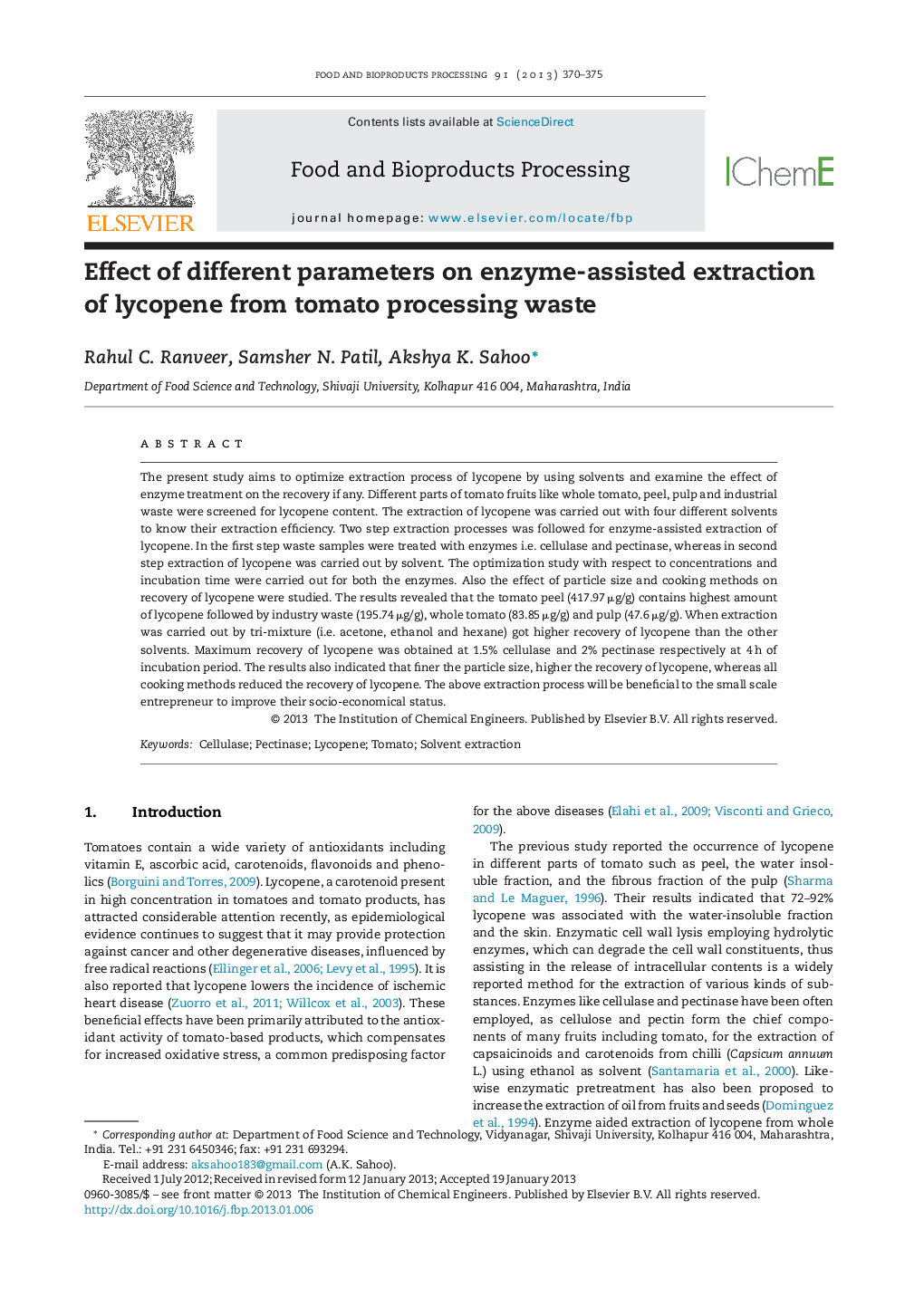| Article ID | Journal | Published Year | Pages | File Type |
|---|---|---|---|---|
| 19101 | Food and Bioproducts Processing | 2013 | 6 Pages |
The present study aims to optimize extraction process of lycopene by using solvents and examine the effect of enzyme treatment on the recovery if any. Different parts of tomato fruits like whole tomato, peel, pulp and industrial waste were screened for lycopene content. The extraction of lycopene was carried out with four different solvents to know their extraction efficiency. Two step extraction processes was followed for enzyme-assisted extraction of lycopene. In the first step waste samples were treated with enzymes i.e. cellulase and pectinase, whereas in second step extraction of lycopene was carried out by solvent. The optimization study with respect to concentrations and incubation time were carried out for both the enzymes. Also the effect of particle size and cooking methods on recovery of lycopene were studied. The results revealed that the tomato peel (417.97 μg/g) contains highest amount of lycopene followed by industry waste (195.74 μg/g), whole tomato (83.85 μg/g) and pulp (47.6 μg/g). When extraction was carried out by tri-mixture (i.e. acetone, ethanol and hexane) got higher recovery of lycopene than the other solvents. Maximum recovery of lycopene was obtained at 1.5% cellulase and 2% pectinase respectively at 4 h of incubation period. The results also indicated that finer the particle size, higher the recovery of lycopene, whereas all cooking methods reduced the recovery of lycopene. The above extraction process will be beneficial to the small scale entrepreneur to improve their socio-economical status.
► The peel of the tomato contains higher value of lycopene. ► The solvent mixture of BHT–acetone, ethanol and hexane gives better extraction than other solvents. ► Cellulase (1.5%) and pectinase (2%) at 4 h incubation period give more recovery of lycopene. ► When particle size of the sample reduced lycopene extraction was improved. ► In low flame cooking and microwave cooking degradation of lycopene was occurred.
